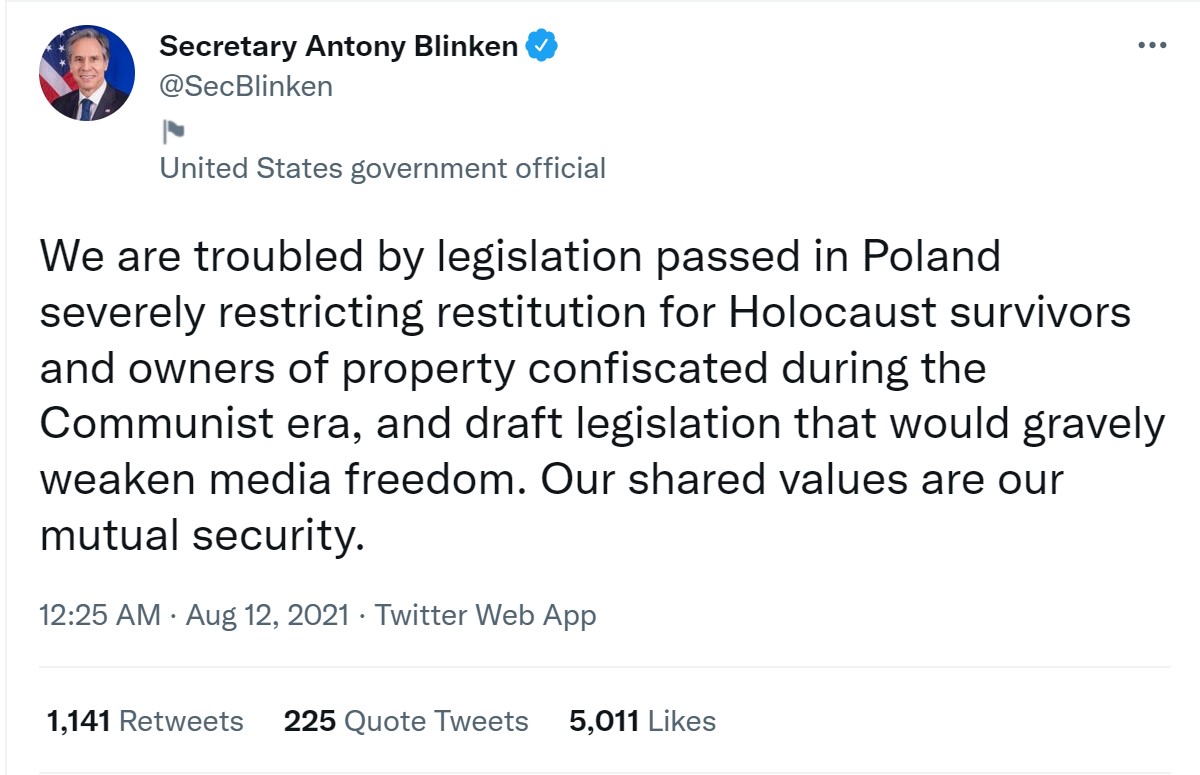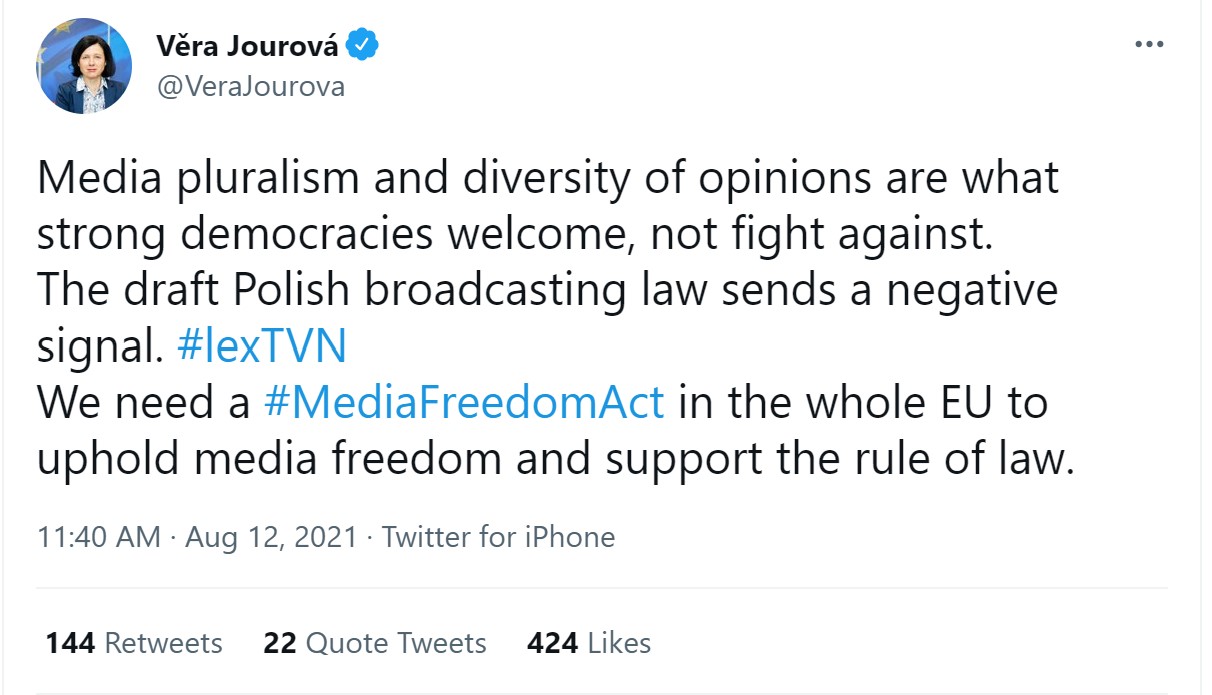
Protesters demonstrate against a new media bill in Poland, which critics say is meant to silence a US-owned media outlet critical of the government. /AFP
The U.S. and the European Union have vented frustration over the advancement of a controversial media reform law in Poland, which critics say targets a U.S.-owned TV station critical of the ruling nationalist party.
The bill would ban companies from outside the European Economic Area owning a controlling stake in a Polish broadcaster. If it becomes law, U.S. media giant Discovery could be forced to sell its stake in TVN, which has channels including TVN24 – one of the most-watched independent news outlets in Poland.

U.S. Secretary of State Antony Blinken said Washington was "deeply troubled" by the draft legislation, which passed the lower house of Poland's parliament on Wednesday. In a statement, he said the Discovery-TVN tie-up was "one of the largest U.S. investments in the country," adding that the bill not only "threatens media freedom" but could also "undermine Poland's strong investment climate."

European Commission Vice President Vera Jourova, who is responsible for media freedom, also chided Warsaw.
"Media pluralism and diversity of opinions are what strong democracies welcome, not fight against," she said in a tweet on Thursday. "The draft Polish broadcasting law sends a negative signal."
The bill, which was put forward by Poland's conservative Law and Justice Party (PiS), passed with 228 votes in favor, 216 against and 10 abstentions. The bill now goes to the Senate, where it is expected to be voted down by the opposition.

In a tweet, the Speaker of the Polish Senate Tomasz Grodzki called free media the "foundation of democracy" and said the Democratic majority would "never agree to an attack on media independent of the government."
Poland's Prime Minister Mateusz Morawiecki defended the bill, saying it was necessary to prevent Russian, Chinese, or Arab media from taking over Polish broadcasters.
"Do we want such a legal state of affairs?" he said at a press conference in late July. "It seems to me that we don't. It seems to me that it is obvious that a serious country must have regulatory instruments to be able to respond to that type of risk."
This legislation adds to a growing list of grievances Brussels has with Warsaw over LGBT+ rights, media freedom, and judicial independence. The two are currently embroiled in a legal row over a controversial disciplinary chamber that could penalize judges for their rulings.
Europe's top court has given Poland until August 16 to dismantle the panel or face financial sanctions. Last weekend, the head of the ruling party, Jaroslaw Kaczynski, said the Disciplinary Chamber "as it currently operates" will be dissolved but it is unclear whether that will satisfy the court.
The European Commission is yet to approve Poland's COVID-19 recovery plan, which would unlock billions of dollars in funding. Brussels maintains the issues are separate.
 简体中文
简体中文

